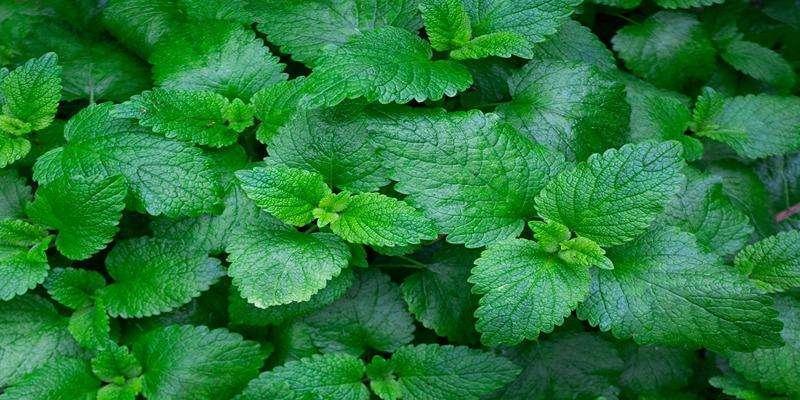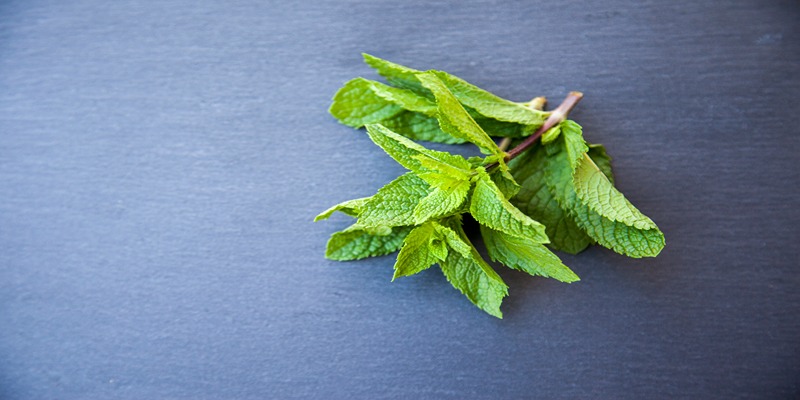Unveiling the Nutritional Profile of Mint Leaves
Mar 19, 2024 By Nancy Miller
The mint leaves, which are highly well-known for their refreshing aroma and their distinctive taste, are not only used as a food ingredient but they also go beyond the kitchen and into the realm of holistic health. This multi-purpose herb has been supporting both culinary and therapeutic practices for ages, appreciated for its numerous health benefits and delightful auras. Mint leaves not only provide a refreshing flavor to food but also serve as a powerful remedy in traditional medicine systems. These small leaves have hence become a highly valued ingredient used by many cultures globally. This article is meant to prepare readers for further analysis of the nutritional composition and broad health benefits of mint leaves, which turn out to be truly powerful in promoting general well-being.

Mint Leaves Nutrition: An Overview
Nutrient Profile of Mint Leaves
Mint leaves are very nutrient dense and this is due to them having various vitamins and minerals plus antioxidants. Mint leaves are a good source of both vitamins A and C. These nutrients help to keep the skin healthy, boost immunity and collagen in the body while preventing oxidative stress. Notably, mint leaves also help in supplying mineral nutrients such as calcium, iron, and potassium which are important and required for strong bones, blood cells production, and electrolyte balance respectively. Mint leaves are rich in antioxidants, such as rosmarinic acid, menthol, and flavonoids; all these compounds possess anti-inflammatory and antimicrobial properties and contribute to protecting the body against diseases and maintaining good health.
Health Benefits of Mint Leaves Consumption
Considering all nutrients and bioactive compounds that mint leaves possess, just a simple chewing of these leaves is enough to offer a plethora of health benefits. The mint leaves are known to have a beneficial effect on digestion as they can soothe the muscles of the stomach and promote the flow of bile. Besides, they help in the treatment of irritable bowel syndrome, indigestion, and bloating. In addition, the menthol in mint leaves gives a comforting release from respiratory problems such as congestion, spasms and coughs, and thus can be employed as a natural decongestant as well as an expectorant. Another advantage of mint leaves is that they have an antimicrobial property which helps in fighting dental microbes, thus, promoting oral health and making a breath fresh. Health advantages that are revealed through incorporation of mint leaves in one's foods prove that mint leaves should be brought on board for a healthy and vibrant lifestyle.
Health Benefits of Mint Leaves
Digestive Health Benefits
Mint leaves are popular among gastrointestinal issues. Their digestive benefits can aid in the reduction of digestive tracts. The internal menthol present in the mint leaves works as a natural muscle relaxant, thus soothing the digestive tract and easing indigestion, gas and bloating discomfort. Also, peppermint leaves are useful in increasing bile flow and this facilitates digestion of fats and general digestion as well. Additionally, mint leaves contain carminative properties which help to relieve intestinal spasms, and to alleviate the pain and discomfort which is related to conditions like irritable bowel syndrome (IBS). The practice of eating mint leaves or having them as herbal tea can help you not only to improve your digestion but also to calm your stomach.
Respiratory Health Benefits
Mint leaf aromatic properties that are essential in the battle against respiratory issues. Breathing mint vapors or consuming the beverage made from combined mint can help in relieving respiratory symptoms like stuffy nose, cough, and asthma. Menthol in mint leaves is a component that is as natural as being a decongestant because it loosens mucus and makes it easier to be expelled from the respiratory tract. Besides, the anti-inflammation in mint leaves further bring down airway inflammation and breathing. Humans turn to mint leaves' because they are proven to promote respiratory health. They are used as natural remedies to ease respiratory discomfort or even improve lung function.
Oral Health Benefits
Not only does mint leaves provide oral health care, but also increases breath freshness by means of its antimicrobial and breath-freshening properties. The antibacterial activity of mint leaves gives the bacteria in the mouth a hard time because some of the bacteria are the ones that can cause plaque formation, gum disease, and bad breath. The scent of mint is not only good for your mood, but it can also make your mouth feel fresh and clean. Chewing mint leaves or using mint-infused mouthwashes will keep your oral bacteria in check and promote good dental hygiene. Moreover, the fact that mint is incredibly refreshing leaves the mouth with an amazing taste masking smells and providing a long-lasting freshness for the breath. Consuming mint leaves as an ingredient in an intensive oral care routine can contribute to overall oral hygiene by promoting a healthy smile and breathe.

Herbal Nutrition: Maximizing Mint Leaves in Diet
Incorporating Mint Leaves into Culinary Dishes
Mint leaves are characteristically refreshing and with a myriad of culinary uses thus making them a versatile ingredient in cuisines found everywhere. Fresh mint leaves can be chopped and used as a topping for salads, fruit salad or yogurt, for a fresh and sweet taste. They can also be used in sweet dishes such as cakes, cookies, and ice cream to add the characteristic fresh taste to these foods. Also, the mint leaves are one of the main ingredients of many sauces, chutneys, and marinades for the meat and vegetables. The application of mint leaves into different culinary ways helps to make the taste of food more delicious and nutrient-rich while we are increasing our wellness.
Herbal Remedies and Infusions with Mint Leaves
Besides being used in cooking, mint leaves are also known for its medicinal properties, and it is usually included in herbal remedies and infusions. Mint tea, a herbal infusion that is obtained by steeping fresh and/or dried mint leaves in hot water, is a beverage that is very well-known for its calming effects on the body and digestive benefits. Mint tea may also help reduce digestive discomfort, calm the nerves, and treat nausea and motion sickness. However, fresh mint leaves can also be processed into tinctures, extracts, and essential oils for aromatherapy and topical treatments. These herbal preparations possess such therapeutic properties of mint leaves as natural healing agents and bring holistic balance in the body. Adding mint leaves into the herbal consoles and infusions is a nice and efficient way to benefit from their valuable nutrients and medicinal factors and improve the general state of health and well-being.
Conclusion
Mint leaves have a wondrous compound which is not only for the delicious taste but also provide health benefits and versatility. Making dishes taste great, and serving as natural solutions for problems with digestion, respiration, and oral health, mint leaves are a fantastic ingredient to be incorporated in our daily meals and wellness practices. It is possible to combine them in different dishes, teas or even topical applications, all of them bringing a cool and energizing feeling. Accepting mint leaves' nutritional and medicinal properties will help us to become healthier. This is an important step for a healthy lifestyle, with a happy future.







